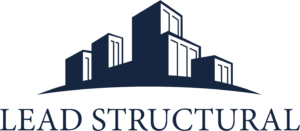Unveiling the Importance of Structural Surveys: A Comprehensive Guide
Introduction:
In the world of construction and real estate, ensuring the structural integrity of a building is of paramount importance. One essential tool that plays a pivotal role in this process is a structural survey. In this blog post, we will delve into the significance of structural surveys and how they can contribute to the safety, maintenance, and longevity of buildings. Join us as we uncover the key aspects of this essential practice.
Understanding Structural Surveys:
Defining the concept: What is a structural survey, and why is it necessary? Scope and objectives: Exploring the purposes and goals of a thorough structural survey. Types of surveys: Highlighting the different types of surveys available, such as full structural surveys, partial surveys, and condition surveys.
Benefits of Structural Surveys: Ensuring safety:
How structural surveys identify potential hazards and minimize risks for occupants. Preserving value: Exploring how regular surveys can help maintain the market value of a property. Early detection of issues: Discussing how surveys can detect underlying problems at an early stage, preventing costly repairs in the future. Compliance with regulations: Highlighting the importance of structural surveys in meeting legal and regulatory requirements.
The Structural Survey Process:
Pre-survey preparations: Outlining the steps to be taken before conducting a structural survey, such as gathering relevant documents and records. On-site inspection: Describing the process of examining the building’s structure, materials, and overall condition. Data collection and analysis: Discussing the methods employed to collect and analyze data during a structural survey, including the use of advanced technologies like drones and laser scanning. Reporting and recommendations: Explaining how survey findings are compiled into a comprehensive report, including actionable recommendations for repairs or maintenance.
When to Conduct a Structural Survey:
Pre-purchase surveys: Discussing the importance of structural surveys before purchasing a property, including how they can influence negotiation and decision-making. Periodic surveys: Highlighting the significance of regular inspections to ensure ongoing safety and maintenance of a building. Renovations and extensions: Exploring the role of structural surveys when planning significant alterations to a building’s structure.
Choosing a Structural Surveyor:
Qualifications and expertise: Outlining the essential qualifications and expertise to look for in a structural surveyor. Accreditation and certifications: Discussing recognized professional certifications and affiliations that ensure the surveyor’s credibility. Experience and track record: Exploring the importance of selecting a surveyor with relevant experience and a solid track record.
Conclusion:
Structural surveys are an indispensable tool in assessing and maintaining the safety and integrity of buildings. By comprehensively examining a structure, identifying potential risks, and providing expert recommendations, these surveys play a crucial role in ensuring the longevity and value of properties. Whether you are a homeowner, buyer, or property investor, understanding the significance of structural surveys can empower you to make informed decisions and protect your investments in the long run.
